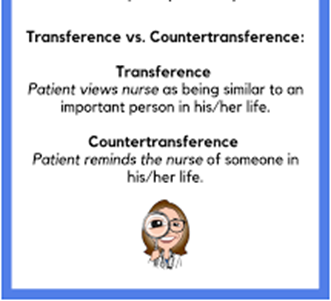During client teaching, the nurse must inform the client prescribed a tricyclic antidepressant (TCA) to not expect to see a difference in mood or anxiety level for up to:
2-4 weeks
1-2 weeks
3-4 days
1-2 days
The Correct Answer is A
Choice A rationale: TCAs do not have an immediate mechanism of action and may take approximately 2-4 weeks to have an effect on the neurotransmitters involved in mood regulation hence the brain may take some time to adjust to these changes.
Choice B rationale: 1-2 weeks is too short, and may lead clients to feel discouraged or frustrated if they do not see any results by then hence informing them of the duration it will take before they can realize a change in their mood or anxiety is crucial.
Choice C rationale: 3-4 days is too short, and may lead clients to feel discouraged or frustrated if they do not see any results.
Choice D rationale: 1-2 days is too short and unrealistic gives the client false expectations and may make them think that the drugs are ineffective in their mood and anxiety control.
Nursing Test Bank
Naxlex Comprehensive Predictor Exams
Related Questions
Correct Answer is D
Explanation
Choice A rationale: Transference involves the client projecting feelings or attitudes onto the healthcare provider and can affect the therapeutic relationship.
Choice B rationale: Environmental problems are external issues arising from the individual’s physical and social setting such as interruptions and noise and can affect the therapeutic environment, not the nurse's emotional responses.
Choice C rationale: Resistance refers to the situation where the client consciously or unconsciously opposes or is reluctant to engage in therapeutic interventions and hinders treatment progress and outcomes.
Choice D rationale: Countertransference occurs when the healthcare provider projects their feelings and emotions, experiences, or unresolved issues onto the client. The nurse's overprotective feelings interfere with the objectivity and effectiveness of the therapeutic relationship.

Correct Answer is {"dropdown-group-1":"C"}
Explanation
Antipsychotics are used in the management of patients with psychotic disorders such as schizophrenia, schizoaffective disorder, and delusional disorder. They include drugs such as olanzapine, clozapine, quetiapine, and risperidone.
Whether you are a student looking to ace your exams or a practicing nurse seeking to enhance your expertise , our nursing education contents will empower you with the confidence and competence to make a difference in the lives of patients and become a respected leader in the healthcare field.
Visit Naxlex, invest in your future and unlock endless possibilities with our unparalleled nursing education contents today
Report Wrong Answer on the Current Question
Do you disagree with the answer? If yes, what is your expected answer? Explain.
Kindly be descriptive with the issue you are facing.
